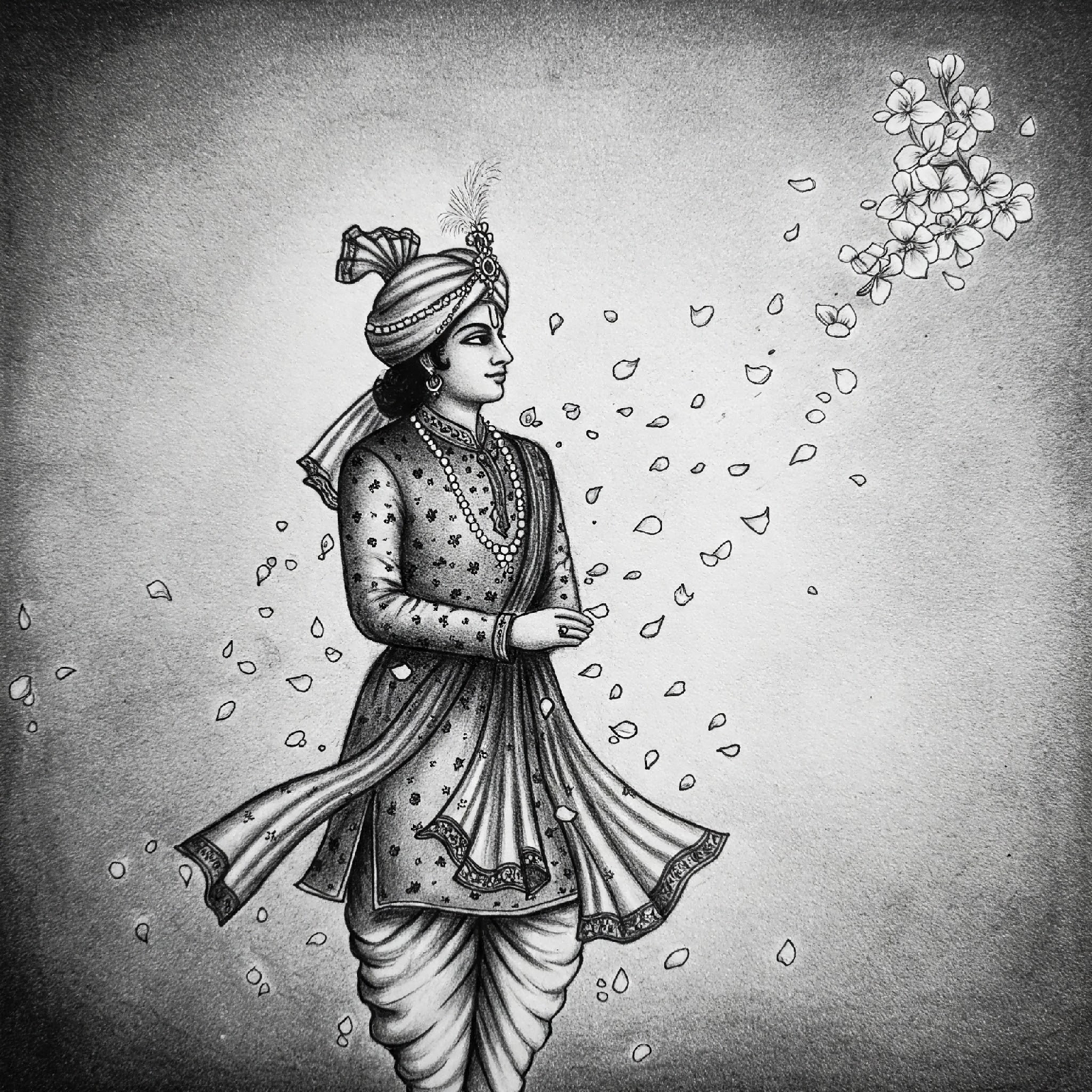The Weaver's Curse (A Japanese folklore)
The Onryō is a powerful and terrifying type of yūrei (ghost) in Japanese folklore. Unlike spirits who might linger due to sadness or attachment, the Onryō is driven by intense rage, hatred, and a burning desire for revenge stemming from a deep, unresolved grievance suffered in life. Their malevolent intent can have devastating consequences for the living.
In a prosperous town known for its exquisite silk weaving, lived a woman named Kiyo. She was renowned for her skill and the beauty of her creations, and she was deeply in love with a young nobleman, Lord Masaru, who often commissioned her finest work. Masaru, however, was fickle and ambitious. He courted Kiyo with passionate words and promises, but his true intention was to gain influence through a politically advantageous marriage with a woman of higher standing.
When Kiyo learned of Masaru's impending wedding to another, her heart shattered. Betrayed and consumed by a furious grief, she confronted him. Masaru, cold and dismissive, denied his promises and cruelly mocked her lower social status. In her despair and rage, Kiyo cursed Masaru and his lineage with her dying breath, collapsing from a broken heart.
Soon after Masaru's grand wedding, a series of terrifying events began to plague his household. Servants would wake screaming from vivid nightmares of Kiyo, her face contorted in anguish, her long black hair obscuring her features as she reached for them. The once-beautiful mansion was filled with unsettling whispers and the feeling of an oppressive cold.
Masaru himself began to experience vivid illusions. He would see Kiyo's spectral figure in the shadows, her sorrowful eyes accusing him. The intricate patterns in the silk tapestries would twist into her vengeful face. The scent of her favorite white lilies, which she always kept near her loom, would suddenly fill the air, a haunting reminder of his betrayal.
The nightmares intensified. Masaru would relive his cruel dismissal of Kiyo, but in his dreams, her despair would transform into a terrifying rage. She would pursue him through shadowy corridors, her ethereal hands reaching to choke the life out of him. He would wake up in a cold sweat, the lingering feeling of her icy touch still on his skin.
The curse didn't stop with Masaru. His new wife fell gravely ill, plagued by a wasting sickness that the physicians could not explain. Their newborn child would cry inconsolably, seemingly sensing a malevolent presence in the house. Misfortunes befell the entire household – accidents, unexplained fires, and a pervasive atmosphere of dread.
Desperate, Masaru consulted priests and miko (shrine maidens). They recognized the signs of a powerful Onryō, a spirit fueled by deep, unresolved urami – Kiyo's intense resentment. They explained that her curse would not lift until her grievance was addressed.
The priests performed elaborate purification rituals and chanted sutras to try and pacify Kiyo's spirit. Offerings of her favorite flowers and the finest silk were placed at a makeshift altar dedicated to her memory. However, the manifestations continued. Kiyo's spectral figure still haunted the shadows, her whispers still echoed through the halls, and the nightmares persisted.
One wise old miko suggested a different approach. Instead of just trying to banish the spirit, they needed to acknowledge Kiyo's suffering and attempt to mend the wrong that was done to her. Masaru, humbled by the relentless torment, was finally willing to listen.
Following the miko's guidance, Masaru commissioned a beautiful shrine dedicated to Kiyo. He had her story and her skill as a weaver honored with intricate carvings and offerings of the finest silk she would have created. He publicly acknowledged his cruel betrayal and offered a heartfelt apology to her spirit, expressing his deep regret for the pain he had caused.
Slowly, the manifestations began to subside. The nightmares became less frequent and less vivid. The oppressive cold lifted from the mansion. Masaru's wife began to recover, and the child's cries lessened. Kiyo's spectral figure was seen less often, and when she did appear, her expression seemed less filled with rage, a hint of sorrow remaining.
It was believed that by acknowledging her suffering, honoring her memory, and expressing sincere remorse, Masaru had begun to appease Kiyo's Onryō. Her urami, though not entirely vanished, had lessened enough to release its devastating grip on his life and his household.
This story illustrates how an Onryō can manifest through illusions and nightmares, and the difficult path towards appeasement, often requiring genuine remorse and an attempt to right the original wrong.






I have read any books by The Elder, but I am convinced by your review that it is worth reading. i adored how you introduced us to the Japanese concept of the Onryō ghost. It is a rather unique take and the story sells itself on the integrity of Masaru and his love for Kiyo.
ReplyDeleteYou used short sentences, vivid descriptions, and a thorough review of the story.